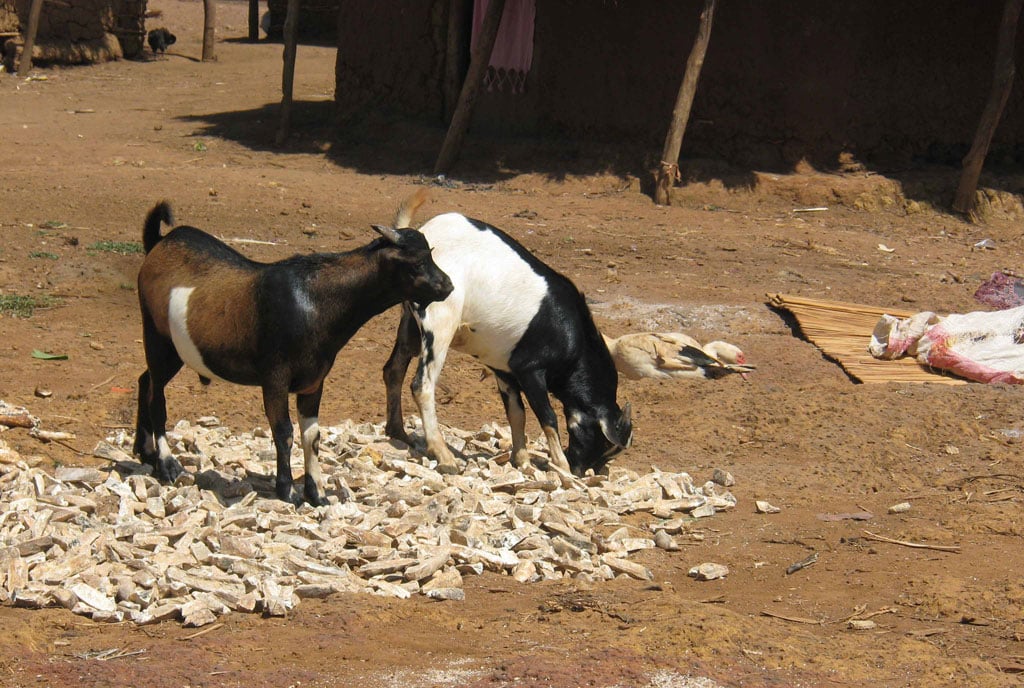Farmers at crossroads as African seeds face extinction

A woman in Mukongoro Sub-county in Kumi District hang her maize seeds on a palm tree for purposes of replanting next season. PHOTO | SIMON PETER EMWAMU
What you need to know:
- Framers say it has become difficult to achieve good harvests from modified seeds, which have adulterated the original African seed bank
Two decades ago, Christopher Obwalinga, a farmer in Atapar Village, Kapir Sub-county, Ngora District, never imagined a time when he would need to buy seeds from agro shops every season.
Traditionally, Teso farmers, known for producing grains and legumes, preserved seeds in granaries after harvest for replanting.
However, this practice has been disrupted by the influx of modern European seeds in agro shops across Uganda.
Mr Obwalinga explained last Friday that for the past five years, it has become difficult to achieve good harvests from these seeds, which have adulterated the original African seed bank.
“If you try replanting seeds from the previous harvest, whether it’s maize, sorghum, beans, or tomatoes, most crops wither within three weeks. Those that survive produce a miserable harvest,” he said.
He recalled that before modern seeds replaced traditional ones, replanting indigenous seeds not only resulted in healthy crops but also good yields.
“The trouble began with hybrid maize and sorghum distributed by the government through Operation Wealth Creation. Soon after, these crops were attacked by armyworms,” Mr Obwalinga said.
He added that indigenous maize and sorghum were rarely affected by the armyworm.
Mr Obwalinga lamented that farmers were misled into rushing for improved seeds, believing they would yield well and mature early.
“We didn't realise it was a disaster waiting to happen,” he said.
He also highlighted the financial burden, explaining that seeds are sold at exorbitant prices, yet the market prices for produce are often very low.
“You buy maize seeds between Shs20,000 and Shs45,000 for a 2kg packet, but when selling, you get just Shs500 per kilogramme,” he explained.
In Soroti District, the price of a 2kg pack of improved maize seeds ranges from Shs20,000 to Shs45,000, depending on the variety, while improved sorghum seeds cost Shs15,000 to Shs30,000. Sunflower seeds are even pricier, ranging from Shs35,000 to Shs75,000 for 2kg.
Ms Frances Akello, a retired civil servant and farmer, echoed Mr Obwalinga's concerns, noting that modern crops have lost their original taste.
“The new varieties of groundnuts don’t taste like the indigenous ones we grew up with,” she said.
Ms Akello also raised the possibility that Ugandans might be unknowingly buying genetically modified (GMO) seeds labelled as hybrids, even though the 2012 GMO Bill was not signed into law.
Mr James Okello, a retired agriculturalist from Arapai Agriculture College, warned that hybrid seeds can alter the genotype of traditional varieties through pollination, reducing the ability of indigenous seeds to replicate.
He explained that unlike open-pollinated indigenous seeds, hybrids do not produce reliable results when replanted in subsequent seasons.
Mr Okello attributed the widespread use of hybrid seeds to climate change and the promise of higher yields, faster maturation, and drought resistance.
However, he emphasised the need for regulation in the seed business, as Uganda lacks a law governing GMO technology.
“In a country where trust has diminished, it’s hard to trust entities selling seeds in our liberal economy,” he said.
Mr Felix Okwakol, the chairperson of Uganda Farmers’ Common Voice Platform (UFCVP), highlighted the challenges posed by modern seeds, which require constant spraying and are not weed-resistant.
“Besides being expensive, they can’t easily be replanted,” Mr Okwakol said.
He added that UFCVP is working to establish regional African seed banks to preserve indigenous seeds, although efforts in eastern and northern Uganda were delayed by the Covid-19 pandemic.
Prof Deogracious Olila, the dean of agriculture and animal sciences at Busitema University, called for an agricultural policy to safeguard indigenous seeds and animals.
“We need a clear policy focusing on research into indigenous varieties. Without it, we won’t be able to compete,” Prof Olila said.
Mr Okodan Akwap, an associate consultant at Uganda Management Institute's Mbale campus, expressed concern over the Ministry of Agriculture's lack of funding to enforce biodiversity safeguards.
“Global seed companies are more concerned with profit than preserving nature,” Mr Akwap said, fearing that GMO technology may have already infiltrated Uganda despite President Museveni's refusal to sign the 2012 National Biosafety Bill into law.




